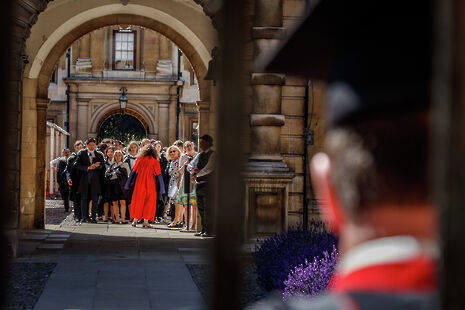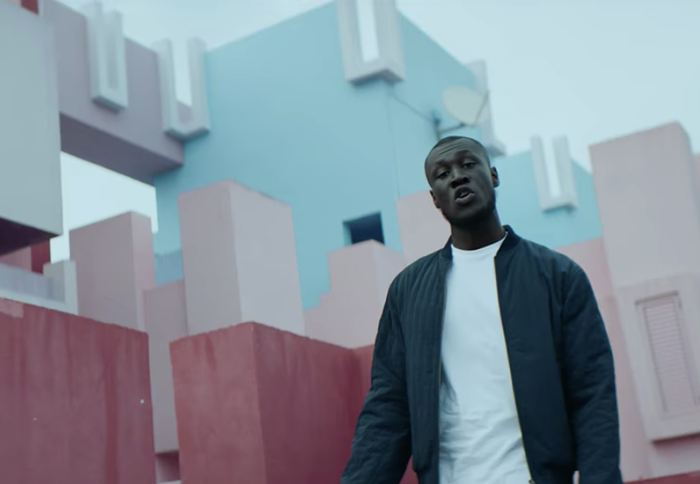20 courses accepted fewer than three black students in 2018
Cambridge accepted more Etonians than black male students last year

20 courses accepted fewer than three black students in 2018, Cambridge’s latest admissions statistics have revealed. In Natural Sciences, the largest Cambridge subject with 430 accepted UK students in 2018, just three were black, less than 0.7% of admitted students.
Several subjects with large intakes – including English, History, MML, Mathematics, Computer Science, and Natural Sciences – had cohorts where less than 2% were black students.
Cambridge accepted a total of 40 black female students and 21 black male students in 2018, defined as those who declared their ethnicity as ‘black or black British – Caribbean’, ‘black or black British – African’, or ‘other black background’. In 2016, Cambridge accepted more black men than Etonians for the first time — this year, the trend was reversed, as 22 Etonians were accepted into Cambridge.
Breakdowns of Cambridge courses by ethnicities, of data for just applicants who applied as home students, have revealed wide disparities in BME intakes between subjects, and across the arts and sciences. Economics, Architecture, and Medicine had the highest percentages of BME students accepted, of 49.5%, 43.5%, and 44% respectively.
Subjects which accepted 50 or more BME students in 2018 included Economics, Engineering, Medicine, and Natural Sciences. Some subjects with similarly sized cohorts varied significantly in the percentage of BME students accepted: Engineering accepted 68 BME students in its cohort of 197, while English accepted 33 for a cohort size of 178.
Across all subjects, disparities in success rates for ethnic minorities continue to persist: Black applicants had a 13.1% chance of getting accepted, while White and Chinese applicants had success rates of 24.7% and 25%, respectively. Pakistani and Bangladeshi applicants had a 13% success rate for the 2018 cohort. Overall, 23.2% of students accepted to Cambridge in 2018 were BME.
In a blog post, CUSU access and funding officer Shadab Ahmed said that the “biggest concern” was the “sharp difference in success rates”.
“We need to delve into the specific issues certain groups might face in order to be able to tackle them at the roots, and not mask issues under the “BME” umbrella”.
A Varsity analysis has also found that in 2018, Cambridge admitted the lowest number of women to study maths in over 15 years, making the percentage of female maths freshers at 15%. Among UK students, 41 BME students were accepted to maths out of 139 home students.
Cambridge has made efforts to both attract more BME students and more students from educationally disadvantaged backgrounds. In August it announced the ‘Stormzy scholarship’, where, in partnership with grime artist Stormzy, it would fully fund four black Cambridge undergraduates.
Cambridge has also launched a video campaign, ‘Get in Cambridge’, in collaboration with Cambridge ACS, aimed specifically at year 12 students from underrepresented groups, which was introduced on 10th June by Cambridge graduate, business-owner and YouTuber Courtney Daniella.
A photoshoot of 15 black men at Cambridge taken in 2017 and 50 black women of Cambridge taken last year, both organised by Cambridge ACS, went viral.
In the photoshoot of 50 black women of Cambridge, an accompanying letter emphasised that to black women at Cambridge, “ensuring that we remain visible and have our voices heard is of the utmost importance”.
- Updated, 13th June 2019: This article was edited to include information on the ‘Get in Cambridge’ video campaign.
 News / Judge Business School advisor resigns over Epstein and Andrew links18 February 2026
News / Judge Business School advisor resigns over Epstein and Andrew links18 February 2026 News / Hundreds of Cambridge academics demand vote on fate of vet course20 February 2026
News / Hundreds of Cambridge academics demand vote on fate of vet course20 February 2026 News / Petition demands University reverse decision on vegan menu20 February 2026
News / Petition demands University reverse decision on vegan menu20 February 2026 News / CUCA members attend Reform rally in London20 February 2026
News / CUCA members attend Reform rally in London20 February 2026 News / Gov grants £36m to Cambridge supercomputer17 February 2026
News / Gov grants £36m to Cambridge supercomputer17 February 2026











